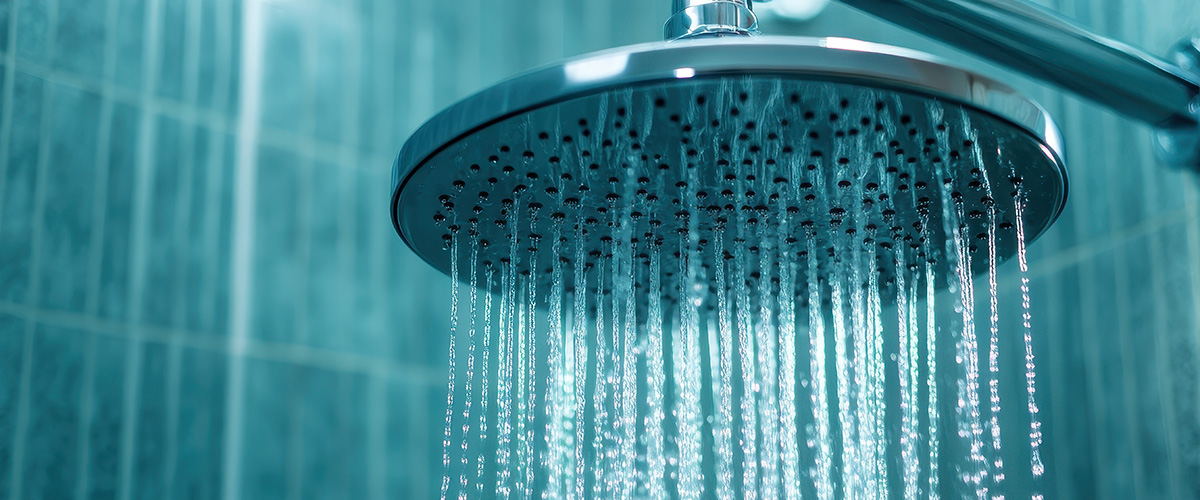Hard water buildup is a common issue in many homes, leading to unsightly stains, clogged pipes, and decreased efficiency of appliances. If left untreated, mineral deposits from hard water can cause long-term damage to your plumbing system. Understanding how to manage and remove these deposits can help keep your home’s plumbing and fixtures in top condition.
What is Hard Water?
Hard water contains high levels of minerals, primarily calcium and magnesium. These minerals accumulate over time, forming scale deposits on fixtures, inside pipes, and in water-using appliances. While hard water isn’t harmful to your health, it can create persistent cleaning challenges and impact the efficiency of your plumbing system.
Signs of Hard Water Buildup
If you have hard water in your home, you may notice:
- White or chalky residue on sinks, faucets, and showerheads
- Cloudy or spotty glassware after washing
- Reduced water pressure due to mineral buildup in pipes
- Soap scum that’s difficult to remove from bathtubs and showers
- Shortened lifespan of appliances like water heaters, dishwashers, and washing machines
- Clothes that feel stiff or scratchy after washing
- Dry or irritated skin and hair due to the minerals in the water
How Hard Water Affects Your Plumbing System
Beyond visible stains and buildup, hard water can cause significant issues within your plumbing system:
- Pipe Clogs: Over time, mineral deposits can accumulate inside pipes, restricting water flow and leading to costly plumbing repairs.
- Reduced Appliance Efficiency: Water heaters, dishwashers, and washing machines must work harder when dealing with mineral buildup, increasing energy consumption and shortening their lifespan.
- Fixture Damage: Faucets, showerheads, and other plumbing fixtures may develop mineral deposits that reduce performance and require frequent cleaning or replacement.
- Higher Utility Bills: When appliances and water heaters work less efficiently, they consume more energy, resulting in increased monthly costs.
DIY Tricks to Remove Hard Water Buildup
Fortunately, there are several easy methods to remove hard water stains and buildup from your fixtures and appliances. Here are a few effective tricks:
1. Vinegar and Baking Soda Solution
White vinegar is one of the best natural solutions for dissolving mineral deposits. Here’s how to use it:
- Faucets and Showerheads: Fill a plastic bag with white vinegar and secure it around the fixture with a rubber band. Let it soak for a few hours or overnight before scrubbing with a soft brush.
- Sinks and Bathtubs: Sprinkle baking soda on the affected areas and spray with vinegar. Let it bubble for a few minutes, then scrub and rinse.
2. Lemon Juice for Stubborn Stains
The acidity of lemon juice helps break down calcium deposits.
- Cut a lemon in half and rub it directly on faucets, shower doors, and sinks.
- Let it sit for 10-15 minutes, then wipe with a damp cloth.
3. Commercial Cleaners
For tough buildup, store-bought lime and scale removers can be effective. Look for products specifically designed to dissolve calcium and magnesium deposits.
- Always follow the manufacturer’s instructions.
- Wear gloves to protect your skin when using chemical cleaners.
4. Preventative Maintenance
- Wipe down wet surfaces after use to prevent mineral buildup.
- Use a squeegee on shower doors to reduce water spots.
- Install a water softener to reduce mineral levels in your water supply.
- Regularly clean appliances like dishwashers and washing machines with vinegar to remove mineral deposits.
When to Call a Plumber
While DIY methods work for minor hard water buildup, some issues require professional attention. Contact a plumber if you experience:
- Severely Clogged Pipes: If mineral deposits are blocking water flow and causing low water pressure, professional descaling or pipe replacement may be necessary.
- Water Heater Issues: Hard water can lead to excessive sediment buildup inside your water heater, reducing efficiency and shortening its lifespan. A professional flush may be needed.
- Recurring Stains and Buildup: If hard water deposits return quickly despite regular cleaning, a whole-home water softener may be needed.
- Appliance Malfunctions: Dishwashers, washing machines, and ice makers may suffer from reduced performance due to scale buildup.
- Poor Water Quality: If your water has a strange taste, odor, or appears cloudy, it may indicate excessive mineral content or other contaminants that need professional attention.
The Benefits of Installing a Water Softener
One of the most effective long-term solutions for hard water problems is installing a water softener. A water softener works by removing calcium and magnesium ions from your water, preventing scale buildup and improving overall water quality. Benefits include:
- Cleaner Fixtures and Surfaces: No more white stains or soap scum buildup on sinks, tubs, and shower doors.
- Improved Appliance Efficiency: Water heaters, dishwashers, and washing machines last longer and operate more efficiently.
- Softer Skin and Hair: Hard water minerals can leave your skin feeling dry and your hair dull—soft water helps maintain moisture.
- Better Soap and Detergent Performance: Soft water allows soap to lather better, reducing soap usage and making cleaning easier.
- Extended Plumbing Lifespan: Prevents mineral buildup inside pipes, reducing the risk of clogs and corrosion.
Protect Your Home from Hard Water Damage
Dealing with hard water doesn’t have to be a constant battle. With regular maintenance and professional help when needed, you can prevent damage to your plumbing and appliances. If you’re struggling with hard water issues in your home, our expert plumbers at PF Plumbing in Winston-Salem, NC are here to help. Contact us today for water testing, water softener installation, and professional plumbing services!

